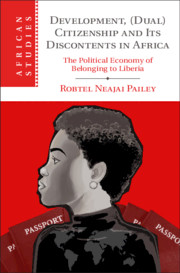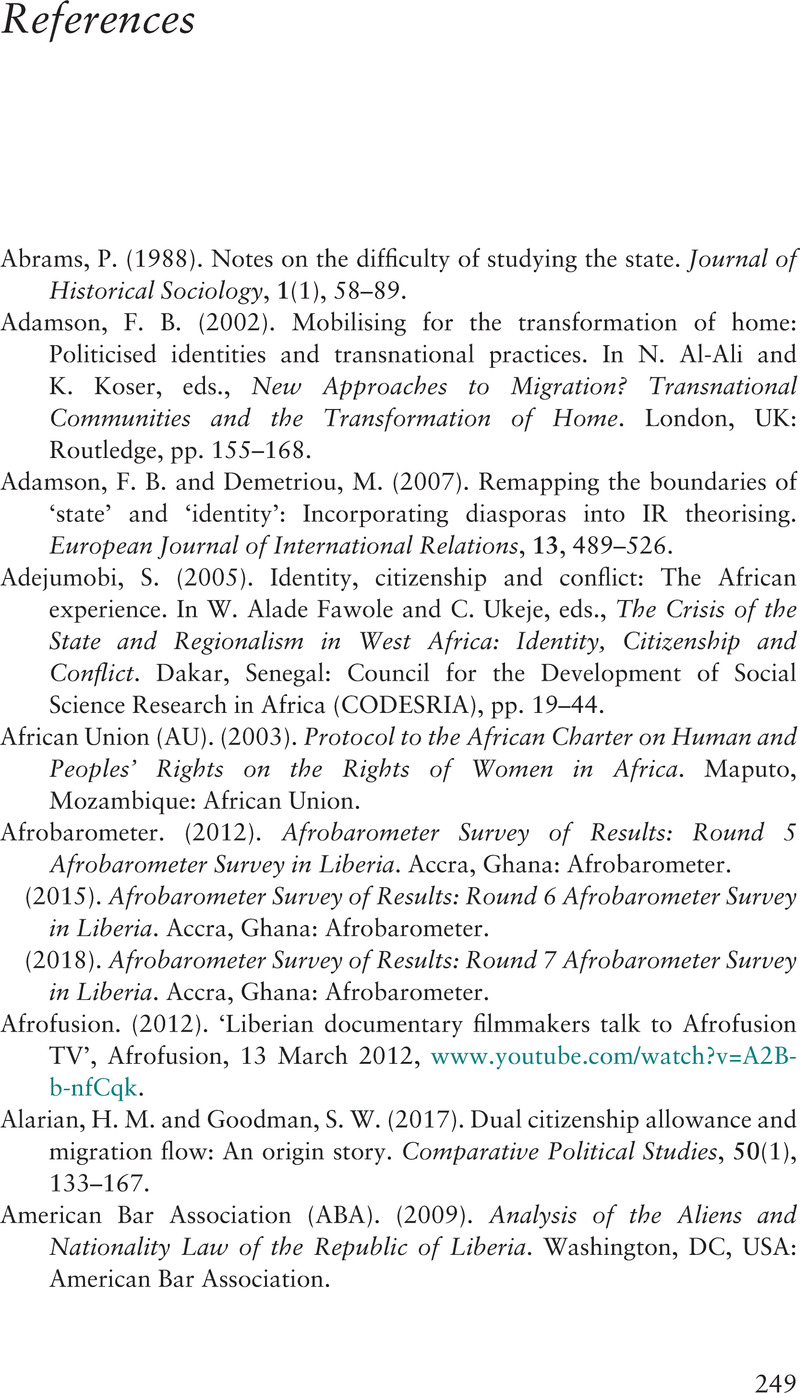 Development, (Dual) Citizenship and Its Discontents in Africa
Development, (Dual) Citizenship and Its Discontents in Africa Book contents
- Development, (Dual) Citizenship and Its Discontents in Africa
- African Studies Series
- Development, (Dual) Citizenship and Its Discontents in Africa
- Copyright page
- Contents
- Figures and Tables
- Acronyms
- Acknowledgements
- Introduction
- 1 Methodological, Theoretical, and Biographical Reflections
- 2 The Political Economy of Belonging to Liberia
- 3 Dual Citizenship and Its Discontents in Africa
- 4 Give Me Your Land or I’ll Shoot!
- 5 Between Rootedness and Rootlessness
- 6 The Dichotomy of Diasporic Developmentalism
- Conclusion
- Book part
- References
- Index
- African Studies Series
- References
References
Published online by Cambridge University Press: 07 January 2021
- Development, (Dual) Citizenship and Its Discontents in Africa
- African Studies Series
- Development, (Dual) Citizenship and Its Discontents in Africa
- Copyright page
- Contents
- Figures and Tables
- Acronyms
- Acknowledgements
- Introduction
- 1 Methodological, Theoretical, and Biographical Reflections
- 2 The Political Economy of Belonging to Liberia
- 3 Dual Citizenship and Its Discontents in Africa
- 4 Give Me Your Land or I’ll Shoot!
- 5 Between Rootedness and Rootlessness
- 6 The Dichotomy of Diasporic Developmentalism
- Conclusion
- Book part
- References
- Index
- African Studies Series
- References
Summary

- Type
- Chapter
- Information
- Development, (Dual) Citizenship and Its Discontents in AfricaThe Political Economy of Belonging to Liberia, pp. 249 - 265Publisher: Cambridge University PressPrint publication year: 2021


